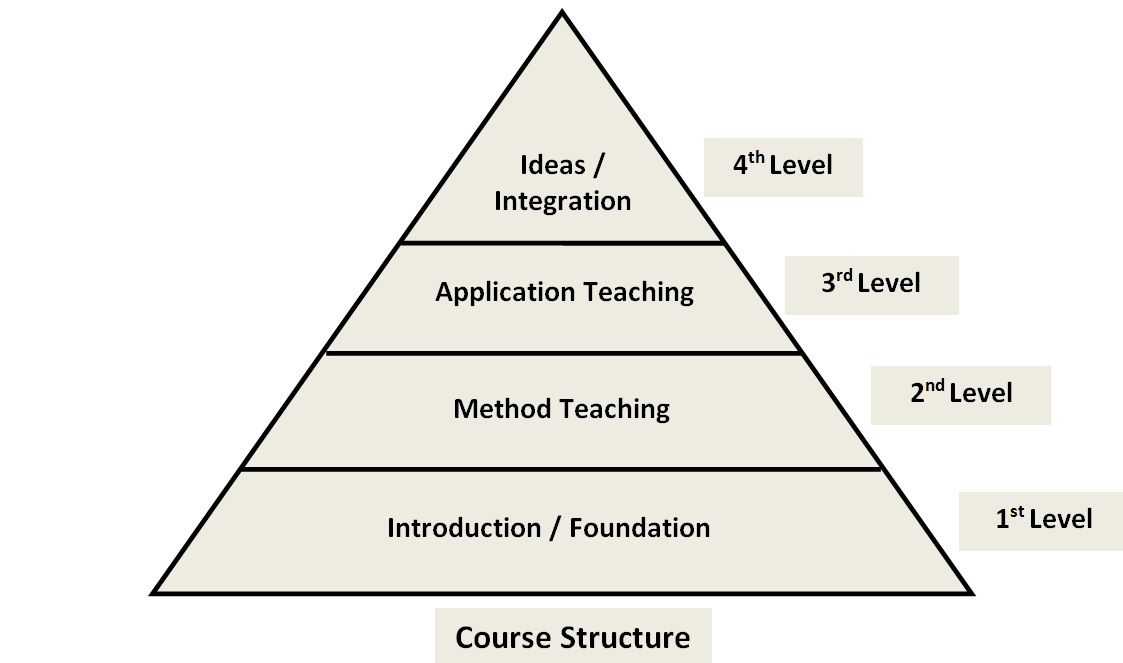Department of Building Economics offers a four-year Bachelor of Science Honours degree in Quantity Surveying with wide range of subjects related to the construction cost management and total management of all services that support the core activities of any construction product. In addition to the knowledge imparted by way of lectures, the programme emphasises on acquiring practical skills as well. Presently the Quantity Surveying degree is underpinned by a wide range of external contacts which are used extensively for projects, work experience placements, research projects and consultancy.
WHAT IS QUANTITY SURVEYING & WHO IS A QUANTITY SURVEYOR?
Quantity Surveying emerged as a profession in the construction industry in 1785 in England and reached Sri Lanka through colonialism in the early 1930’s.
The Quantity Surveyor, who is also known as a Construction Economist or a Cost Manager, is a member of a team of professional advisers to the construction industry. As a Quantity Surveyor, you will be working as a cost consultant, to manage and control costs on building, civil and infrastructure construction projects on behalf of the Owners or Contractors, making use of a wide range of management procedures, technical tools and skills.
ENTRY REQUIREMENTS AND TARGET ENROLMENTS
The selection of students for admission to undergraduate programmes in universities is carried out by the University Grants Commission (UGC) based on the admission policy laid out by them with the concurrence of the government.
The candidates who are interested in entering into BSc Hons (QS) degree programme should have taken at least Combined Mathematics or Higher Mathematics and any two of the following subjects at their General Certificate of Examinations (Advanced Level).
- Chemistry, Physics
- Accounting, Business Statistics
- Economics, Business Studies
In addition to above, the student should satisfy the followings at their General Certificate of Examinations (Ordinary Level) to be eligible for degree programmes in Quantity Surveying.
- At least a credit pass in Mathematics
- At least a pass in Science
- At least a credit pass in English Language
The annual enrolment to the QS degree programme is 152.
ACADEMIC PROGAMMES
THE PROGAMME
The Honours Degree of Bachelor of Science in Quantity Surveying is a four-year full time honours degree programmes. It is structured as follows.
-
A programme extending over seven academic semesters
-
A 24 week period of industrial placement and
-
Research dissertation as specified.
In every level there are two semesters with approximately 26 weeks each. Each semester comprises of a wide range of subjects and various assessments methods have been employed to evaluate the undergraduates’ performance. The composition of the programme over the four levels of study has been in following figure.

The next section provides the detailed By-law and the Performance Criteria for both degree programmes.
STUDENT HANDBOOK
 |
| Student Handbook |
For Intakes After 2022
 |
 |
| By-Law | Performance Criteria |
For Intakes Before 2022
 |
 |
| By-Law | Performance Criteria |
COURSE ACCREDITATION
The Bachelor of Science Honours in Quantity Surveying has been accredited by the following institutes, which has given a good opportunity to build very strong links between these institutions and the Department.
- Institute of Quantity Surveyors Sri Lanka since year 1986
- Royal Institution of Chartered Surveyors since year 1997
- Australian Institute of Quantity Surveyors since year 1999
- Chartered Institution of Civil Engineering Surveyors since year 2010
- Pacific association of Quantity Surveyors since year 2011, The PAQS consists with
- Australian Institute of Quantity Surveyors
- Association of South African Quantity Surveyors
- Building Surveyors Institute of Japan
- Canadian Institute of Quantity Surveyors
- The Hong Kong Institute of Surveyors
- Institute of Quantity Surveyors Sri Lanka
- The Institute of Surveyors, Malaysia
- New Zealand Institute of Quantity Surveyors
- Singapore Institute of Surveyors and Valuers
PROGRAMME STRUCTURE
Bachelor of Science Honours in Quantity Surveying is a four-year full time honours degree programme. It is structured into eight semesters. In every level there are two semesters with approximately 26 weeks each. Each semester offers wide range of subjects and various assessments to evaluate undergraduates' performance. The degree of integration across the modules increases as the student progresses through the semesters.
Modules are categorised under several streams
- Construction Costing
- Procurement Management
- Technological Studies
- Economic Studies
- Management Studies
- Legal Studies
- Project Studies
- General Studies
Commencing from first semester of level three, undergraduates have industrial placements for 32 weeks which is assigned with 8 credits. Later in level four, they are required to undertake a research and produce a dissertation whilst attending lectures and class assignments. This provides with an opportunity to use and develop the attributes stated in the aim of the course and to demonstrate the extent to which they have fulfilled those aims.
The degree programme consists of different modules which can be compulsory or elective and each module is assigned a credit value representing the student's workload. The attendance of a student enrolled for the degree program should not be less than 80% per each module. A student will not qualify for graduation, if he/she does not complete all requirements of graduation within eight academic years from the time of registration, except by the approval from the senate. The requirement for graduation is 150 credits and 10 credits of this shall be earned from Non-GPA modules.
Quantity Surveyors' wide range of competencies on construction contract practice, construction technology, environmental services, economics of construction, financial management and procurement lead the profession to venture into new directions such as Project Management, Risk Management, Value Management, Claims Management, Construction Information Technology Management, Dispute Resolution and Development appraisal. Further, the graduate Quantity Surveyor has the opportunity to become an associate members of Institute of Quantity Surveyors Sri Lanka, Royal Institution of Chartered Surveyors and Australian Institute of Quantity Surveyors.
INTENDED LEARNING OUTCOMES OF THE DEGREE
- Demonstrate the ability to work as Quantity Surveyors both in pre and post contract stages of a construction project
- Apply skills and competencies in cost management, cost estimation, cost reporting, contract administration and procurement advice in construction projects
- Apply the knowledge on construction technology, building services, information and communication technology, and relevant laws, regulations and guidelines in delivering quantity surveying services
- Demonstrate the ability to assist in financial auditing of construction projects, feasibility studies, development appraisals, life cycle cost analysis, value management services and risk management
- Demonstrate intellectual, analytical, critical, interpersonal, innovative, reflective, autonomous and collaborative abilities in delivering quantity surveying functions
- Act ethically with social awareness and professionalism
MODULE OUTLINE (From 2022 Intake)
|
Module Outline Degree of Bachelor of Science HONOURS in Quantity Surveying Programme |
|
Module code |
Module Title |
Module Type |
Credit Value |
Evaluation |
|
|
CA% |
WE% |
||||
|
LEVEL - 1 |
|||||
|
|
SEMESTER - I |
|
|
|
|
|
QS1010 |
Introduction to Construction Industry |
C |
3 |
30% |
70% |
|
QS1020 |
Building Structures and Design Appreciation |
C |
3 |
30% |
70% |
|
QS1030 |
Building Design and Construction I |
C |
3 |
30% |
70% |
|
QS1040 |
Fundamentals of Management |
C |
2 |
30% |
70% |
|
QS1050 |
Professional Communication Skills |
C |
3 |
30% |
70% |
|
QS1060 |
ICT for Quantity Surveying |
C |
3 |
100% |
|
|
|
SEMESTER - II |
|
|
|
|
|
QS1070 |
Building Measurement |
C |
3 |
30% |
70% |
|
QS1080 |
Building Design and Construction II |
C |
3 |
30% |
70% |
|
QS1090 |
Services I |
C |
2 |
30% |
70% |
|
QS1100 |
Building Materials |
C |
3 |
30% |
70% |
|
QS1110 |
Principles of Economics |
C |
3 |
30% |
70% |
|
QS1120 |
Financial Accounting |
C |
2 |
30% |
70% |
|
QS1130 |
Project Study I |
C |
1 |
100% |
|
|
QS1140 |
Land surveying |
E |
2 |
100% |
|
|
LEVEL - 2 |
|||||
|
|
SEMESTER - I |
|
|
|
|
|
QS2010 |
Services II |
C |
2 |
30% |
70% |
|
QS2020 |
Law of Contract and Delicts |
C |
3 |
30% |
70% |
|
QS2030 |
Advanced Building Measurement |
C |
3 |
30% |
70% |
|
QS2040 |
Tendering |
C |
2 |
30% |
70% |
|
QS2050 |
Procurement Systems |
C |
2 |
30% |
70% |
|
QS2060 |
Construction Economics |
C |
3 |
30% |
70% |
|
QS2070 |
Project Study II |
C |
1 |
100% |
|
|
|
SEMESTER - II |
|
|
|
|
|
QS2080 |
Services III |
C |
2 |
30% |
70% |
|
QS2090 |
Law of Property |
C |
3 |
30% |
70% |
|
QS2100 |
Building Information Modelling |
C |
3 |
100% |
|
|
QS2110 |
Project Planning and Management |
C |
2 |
30% |
70% |
|
QS2120 |
Construction Costing |
C |
2 |
30% |
70% |
|
QS2130 |
Organisational Management |
C |
2 |
30% |
70% |
|
QS2140 |
Civil Engineering Construction I |
C |
2 |
30% |
70% |
|
QS2150 |
Project Study III |
C |
1 |
100% |
|
|
QS2160 |
Business Statistics and Operational Research |
E |
2 |
30% |
70% |
|
QS2170 |
Human Resource Management |
E |
2 |
30% |
70% |
|
QS2180 |
Building Surveying |
E |
2 |
30% |
70% |
|
LEVEL - 3 |
|||||
|
|
SEMESTER - I |
|
|
|
|
|
QS3010 |
Industrial Training |
C |
6 |
100% |
|
|
|
SEMESTER - II |
|
|
|
|
|
QS3020 |
Pricing and Bidding |
C |
3 |
30% |
70% |
|
QS3030 |
Civil Engineering Construction II |
C |
2 |
30% |
70% |
|
QS3040 |
Civil Engineering Measurement |
C |
3 |
30% |
70% |
|
QS3050 |
Introduction to Research |
C |
2 |
100% |
|
|
QS3060 |
Sustainable Development |
C |
3 |
30% |
70% |
|
QS3070 |
Commercial Management |
C |
3 |
30% |
70% |
|
QS3080 |
Project Study IV |
C |
1 |
100% |
|
|
QS3090 |
Specification writing |
E |
2 |
30% |
70% |
|
QS3100 |
Entrepreneurship for Quantity Surveyors |
E |
2 |
30% |
70% |
|
QS3110 |
Business and Industrial Law |
E |
2 |
30% |
70% |
|
LEVEL - 4 |
|||||
|
|
SEMESTER - I |
|
|
|
|
|
QS4010 |
Automation in Construction |
C |
3 |
30% |
70% |
|
QS4020 |
Services Measurement |
C |
3 |
30% |
70% |
|
QS4030 |
Contract Interpretation |
C |
3 |
30% |
70% |
|
QS4040 |
Development Economics |
C |
3 |
30% |
70% |
|
QS4050 |
Dissertation* |
C |
5** |
100% |
|
|
QS4060 |
Research Methodology |
C |
2 |
100% |
|
|
QS4070 |
Financial Management |
C |
2 |
30% |
70% |
|
QS4080 |
Project Study V |
C |
1 |
100% |
|
|
|
SEMESTER - II |
|
|
|
|
|
QS4050 |
Dissertation* |
C |
10** |
100% |
|
|
QS4090 |
Project Economics |
C |
3 |
30% |
70% |
|
QS4100 |
Building Information Modelling and Management |
C |
2 |
30% |
70% |
|
QS4110 |
Professional Practice |
C |
3 |
30% |
70% |
|
QS4120 |
Management of Claims and Disputes |
C |
3 |
30% |
70% |
|
QS4130 |
Project Study VI |
C |
1 |
100% |
|
* Module is conducted, and continuous assessments are done throughout the semesters and the grade is awarded at the end of semester II
** The total credit value of 15 assigned to the module has been spread between two semesters to manage the academic workload of the students.
C |
- Compulsory |
|
CA |
- Continuous Assessment |
|
E |
- Elective |
|
WE |
- Written Examination |
|
Module Outline
List of Non-GPA (General Studies) Modules |
|
Module code |
Module Title |
Module Type |
Credit Value |
Evaluation |
|
|
CA% |
WE% |
||||
|
QS0010 |
Philately |
E |
2 |
100% |
|
|
QS0020 |
Music |
E |
2 |
100% |
|
|
QS0030 |
Basic Reading and Writing |
E |
2 |
100% |
|
|
QS0040 |
Aerobics |
E |
2 |
100% |
|
|
QS0050 |
Facilitation |
E |
2 |
100% |
|
|
QS0060 |
Active Citizens |
E |
2 |
100% |
|
|
QS0070 |
Photography and Videography |
E |
2 |
100% |
|
|
QS0080 |
Lifestyle Accessories |
E |
2 |
100% |
|
|
QS0090 |
Home Gardening |
E |
2 |
100% |
|
|
QS0100 |
Link Language: Sinhala |
E |
2 |
100% |
|
|
QS0110 |
Link Language: Tamil |
E |
2 |
100% |
|
|
QS0120 |
Human Rights |
E |
2 |
100% |
|
|
QS0130 |
Computer Programming |
E |
2 |
100% |
|
|
QS0140 |
Meditation |
E |
2 |
100% |
|
|
QS0150 |
Web designing |
E |
2 |
100% |
|
|
QS0160 |
Japanese |
E |
2 |
100% |
|
MODULE OUTLINE (Before 2022 Intake)
Module OutlineHonours Degree of Bachelor of Science in Quantity Surveying Programme |
|||
| Module Code | Module | Module Type | Credit Value |
| LEVEL - 1 | |||
| BE 1101 | Building Design and Construction I | C | 3 |
| BE 1113 | Drawing and Design Appreciation | C | 3 |
| BE 1209 | Professional Communication | C | 3 |
| BE 1401 | Economics I | C | 2 |
| BE 1403 | Construction Economics I | C | 2 |
| BE 1302 | Fundamentals of Management | C | 2 |
| BE 1211 | Management Accountancy | C | 2 |
| BE 1701 | QS Project Study I* | C | -- |
| General Studies | |||
| BE 1111 | Building Design and Construction II | C | 3 |
| BE 1310 | Legal Systems | C | 2 |
| BE 1405 | Economics II | C | 2 |
| BE 1601 | Measurement I | C | 3 |
| BE 1202 | Services I | C | 3 |
| BE 1102 | Building Materials | C | 2 |
| BE 1109 | Land Surveying | E | 2 |
| BE 1701 | QS Project Study I* | C | 1 |
| LEVEL - 2 | |||
| BE 2209 | Information Technology I | C | 3 |
| BE 2601 | Measurement II | C | 3 |
| BE 2202 | Services II | C | 3 |
| BE 2312 | Law of Contract and Delict | C | 3 |
| BE 2107 | Structures | C | 2 |
| BE 2503 | Tendering and Estimating | C | 3 |
| BE 2308 | Human Resource Management | C | 2 |
| BE 2409 | Sustainable Development | C | 2 |
| BE 2701 | QS Project Study II* | C | -- |
| General Studies | |||
| BE 2306 | Project Planning and Management | C | 2 |
| BE 2206 | Services III | C | 3 |
| BE 2109 | Specification Writing | E | 2 |
| BE 2103 | Civil Engineering Construction I | C | 2 |
| BE 2310 | Law of Property | C | 3 |
| BE 2207 | Business Statistics | C | 3 |
| BE 2407 | Construction Economics II | C | 3 |
| BE 2603 | Procurement Systems | C | 2 |
| BE 2701 | QS Project Study II* | C | 1 |
| LEVEL - 3 | |||
| BE 3703 | Industrial Training | C | 8 |
| BE 3101 | Civil Engineering Construction II | C | 2 |
| BE 3102 | Building Surveying | E | 2 |
| BE 3503 | Bidding and Pricing | C | 3 |
| BE 3601 | Measurement III | C | 3 |
| BE 3206 | Services Integration | C | 2 |
| BE 3310 | Organisational Management | C | 2 |
| BE 3308 | Business Law | C | 2 |
| BE 3205 | Financial Management | C | 2 |
| BE 3701 | QS Project Study III* | C | 1 |
| LEVEL - 4 | |||
| BE 4203 | Information Technology II | C | 3 |
| BE 4601 | Measurement IV | C | 3 |
| BE 4703 | Dissertation* | C | 8 |
| BE 4405 | Development Economics | C | 3 |
| BE 4611 | Contract Interpretation | C | 2 |
| BE 4707 | QS Project Study IV* | C | 1 |
| BE 4703 | Dissertation* | C | 12 |
| BE 4407 | Construction Economics III | C | 2 |
| BE 4615 | Modern Procurement Systems | C | 2 |
| BE 4607 | Professional Practice | C | 2 |
| BE 4617 | Management of Claims and Disputes | C | 2 |
- All general studies modules (Non-GPA) carry 2 credits
* Module is conducted throughout semester I and II. Assessment is done at the end of semester II.
| C | - Compulsory |
| E | - Elective |
| GE | - Non GPA (Elective) |
Module Outline
|
||
| Module code | Module | Credit Value |
| BE 1001 | Meditation | 2 |
| BE 1002 | Photography | 2 |
| BE 1003 | Web Designing | 2 |
| BE 1004 | Aerobics | 2 |
| BE 1005 | Japanese | 2 |
| BE 1006 | Communication Skills | 2 |
| BE 1007 | Web Animation | 2 |
| BE 1008 | Life Style Accessories | 2 |
| BE 1009 | Introduction to Oral Health | 2 |
| BE 1010 | Human Rights | 2 |
| BE 1011 | Career Development | 2 |
| BE 1012 | Fundamentals of Physics | 2 |
| BE 1013 | History of Sri Lankan Philately | 2 |
| BE 1014 | Introduction to Computing | 2 |
| BE 1016 | Facilitation | 2 |
| BE 1017 | Active Citizens | 2 |
